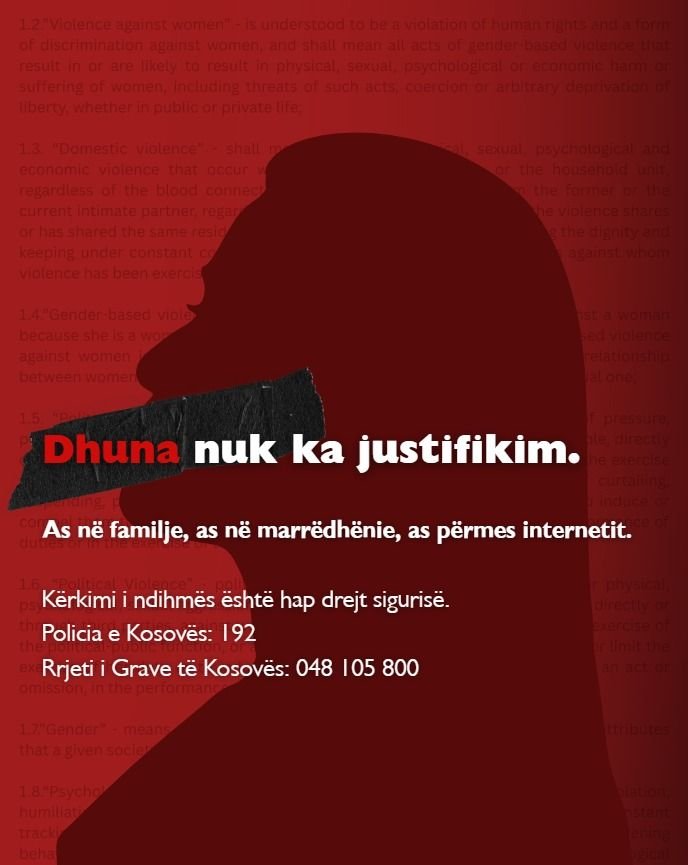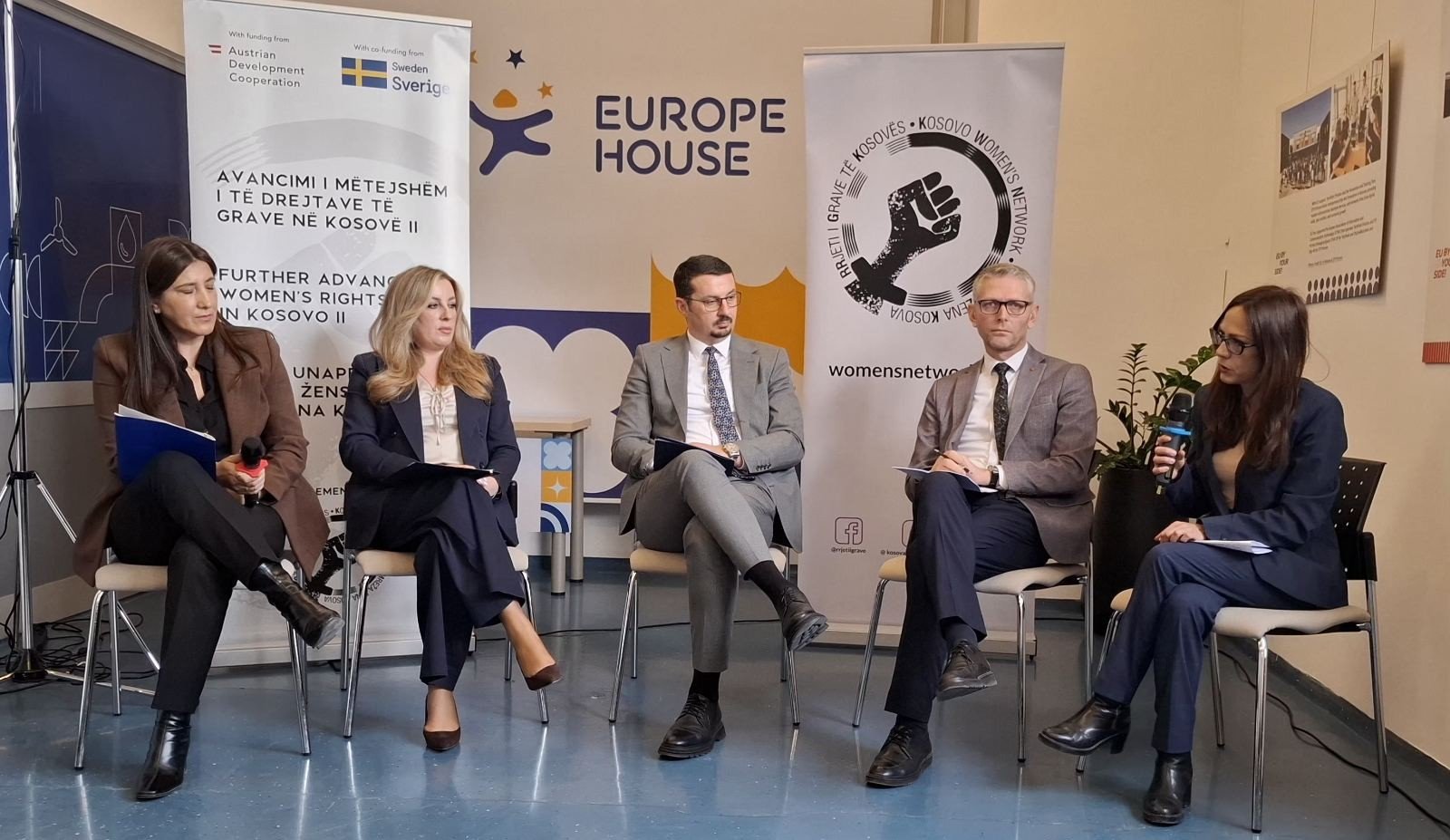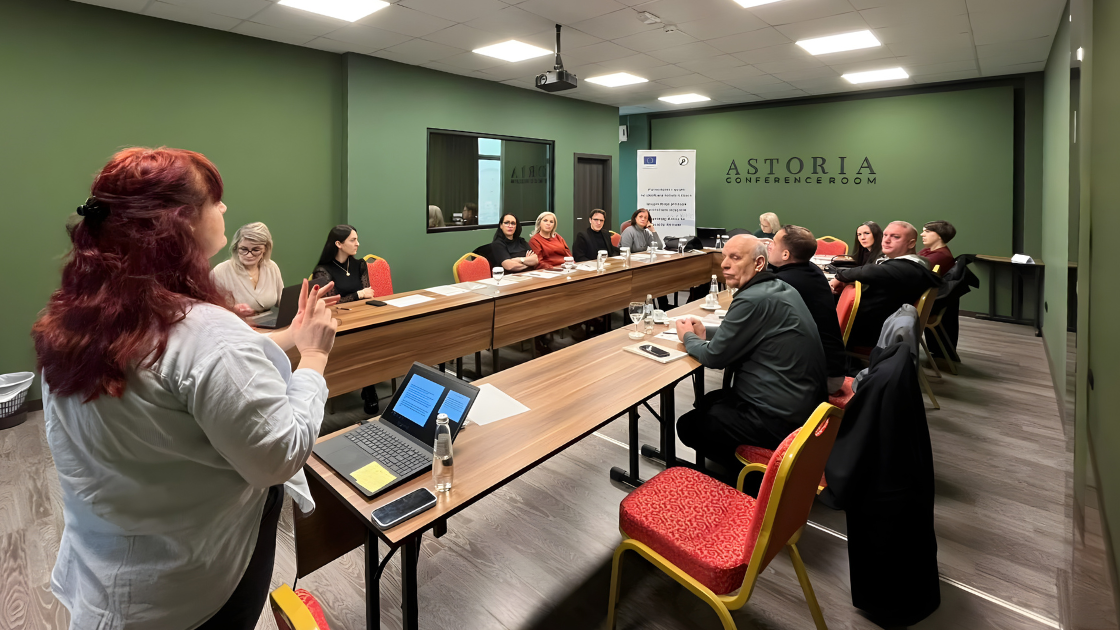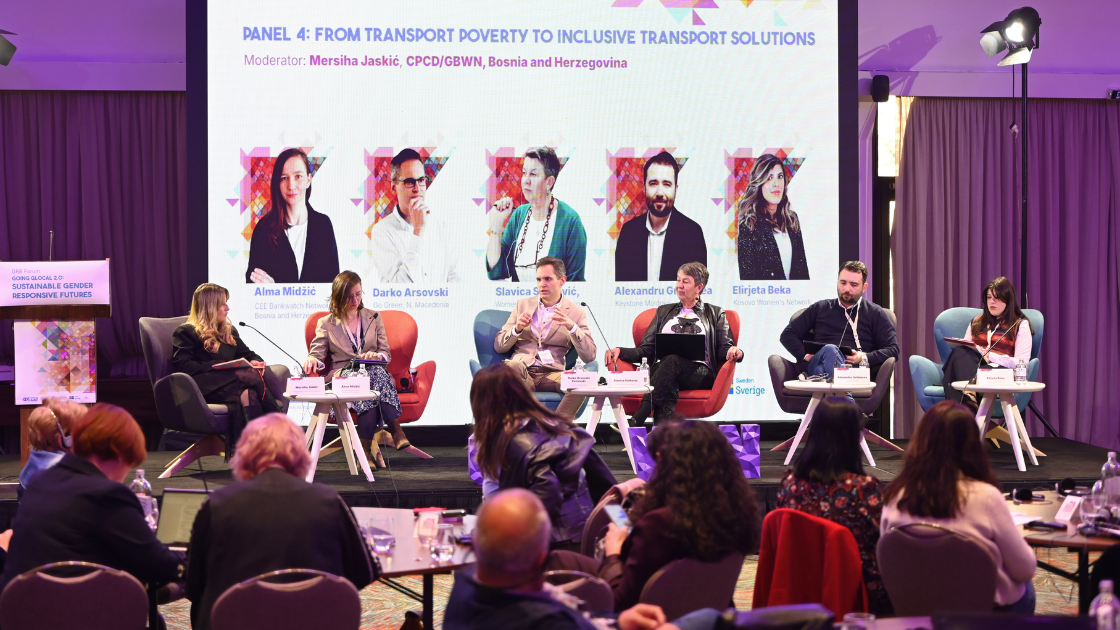During May, the Kosovo Women’s Network (KWN) met with several institutions to discuss gender-based violence in Kosovo, namely domestic violence and sexual harassment. These advocacy meetings, planned in 2015, sought to follow-up on recommendations made to individual institutions in KWN’s two research reports: No More Excuses: An Analysis of Attitudes, Incidence and Institutional Responses to Domestic Violence in Kosovo (2015) and Sexual Harassment in Kosovo (2016). However, the meetings also were timely and pertinent considering recent cases of domestic violence.
More specifically, KWN has been closely following the case of Mrs. Zejnepe Bytyqi Berisha. Her husband stabbed her to death, also injuring their daughter; the Basic Court in Prizren convicted him, but with a sentence of only 12 years in prison. KWN, other activists and citizens expressed their disgust publicly in a demonstration held on 14 April 2017, during which they called for #JusticeForZejnepe (#DrejtësiPërZejnepen).
KWN has continued to follow this case since, contracting a lawyer to support Mrs. Bytyqi Berisha’s family in filing an appeal. The appeal was filed on 17 May with the Basic Court in Prizren.
Meanwhile, KWN has approached three responsible institutions to call for improved performance in investigating crimes and ensuring justice. This week, KWN met with Deputy State Prosecutor Sevdije Morina, Deputy General Director of Police Operations Naim Rexha, Captain Tahire Haxholli who leads the Domestic Violence Investigation Unit in the Kosovo Police, and Manager of the Victims Protection and Assistance Office Basri Kastrati. The main issues that KWN raised during these meetings included:
• Inquiry into how institutions are dealing with the case of Mrs. Bytyqi Berisha, as well as how they are taking steps to improve overall performance in domestic violence cases;
• The need to improve case management and coordination among institutions in assisting and ensuring justice in cases of domestic violence, which was identified as a key concern in KWN’s aforementioned research;
• The need for additional training for prosecutors, police, and Victim Advocates, respectively, to improve their performance, including on: the definition of and what acts constitute sexual harassment; the legal requirement to ensure confidentiality in all cases; the importance of not blaming victims for crimes perpetrated against them; and that officials should not make decisions based on their personal opinions, such as encouraging family reconciliation, particularly when criminal acts have been committed that require ex officio prosecution.
As a result of these meetings, all three institutions verbalized their commitment to addressing shortcomings and improving performance. Further, KWN was informed that the prosecution is working on appointing prosecutors who will be specialized in dealing with domestic violence cases. They will receive training from experts from the United States.
All institutions committed to looking into opportunities for further training officials in the aforementioned topics. They expressed their readiness to continue cooperation with KWN and draw from KWN’s expertise on this topic, as relevant.
KWN will continue monitoring institutions this year and encourages anyone with concerns about performance of institutions in gender-based violence cases to contact us at info@womensnetwork.org or 038245850.







